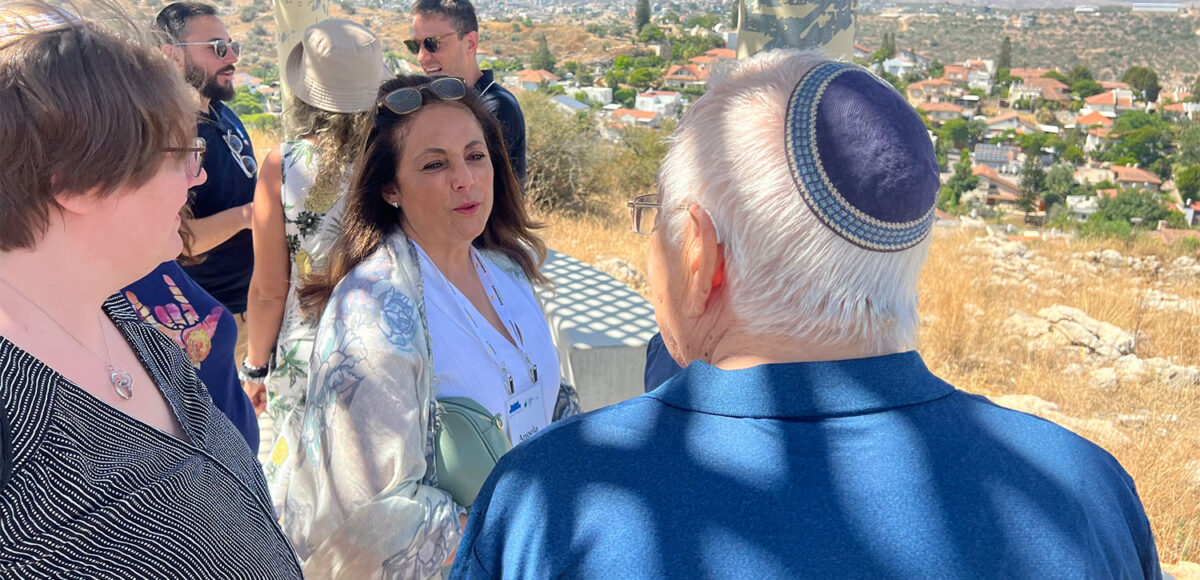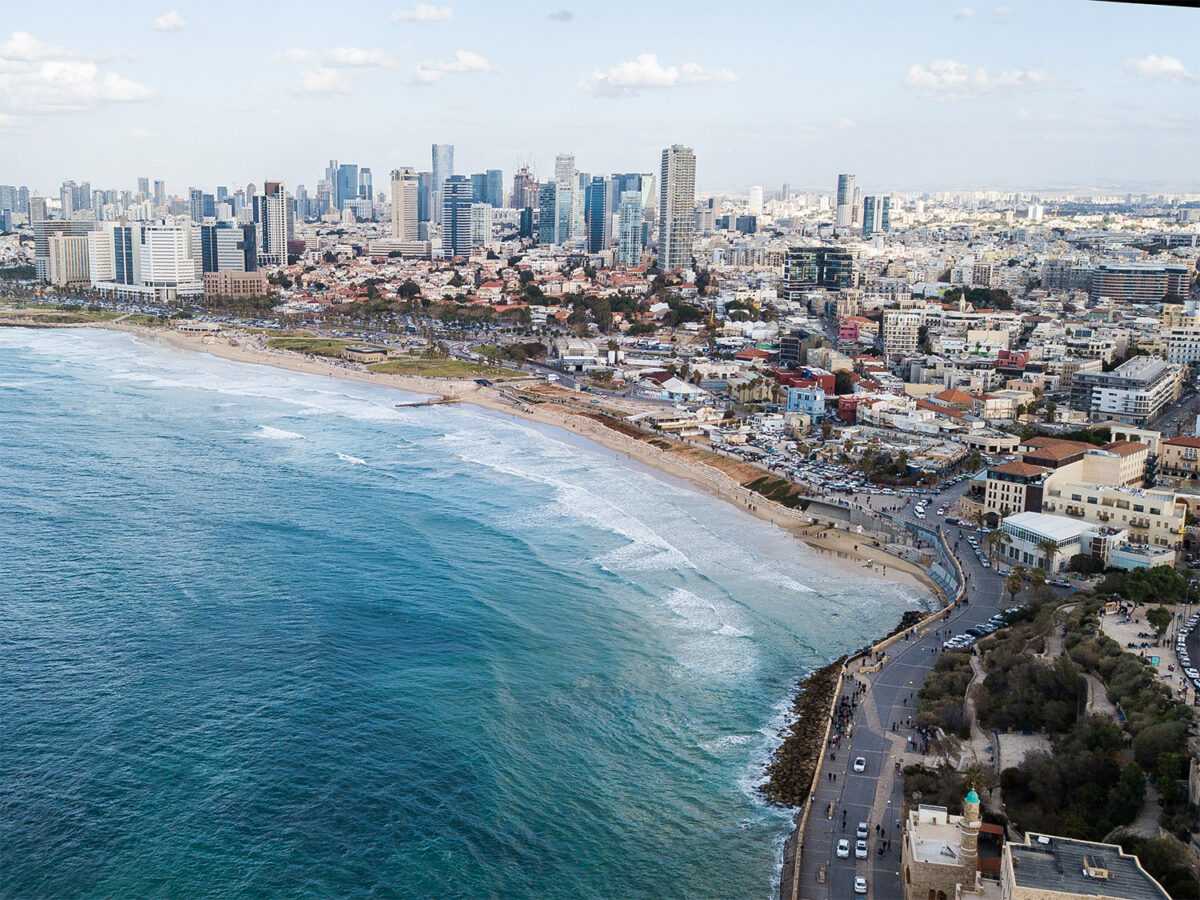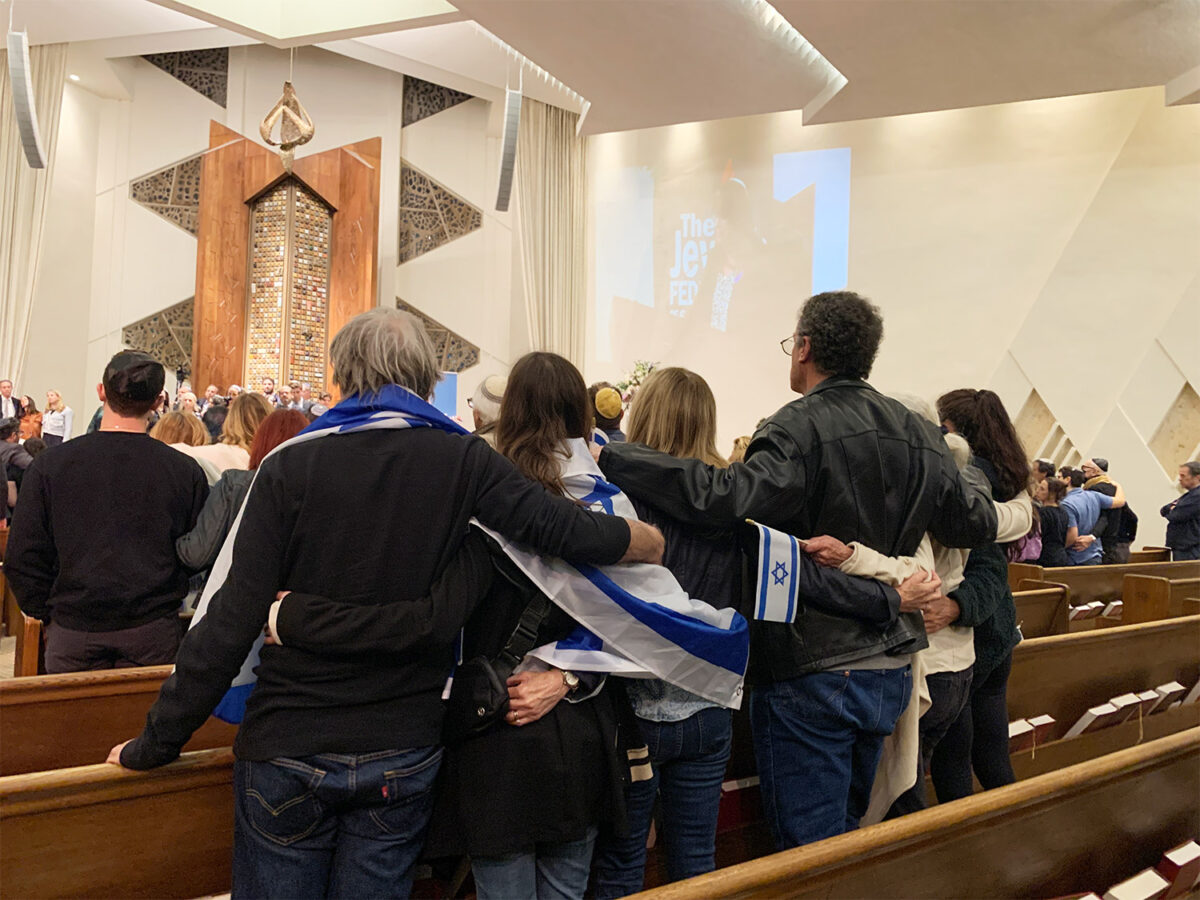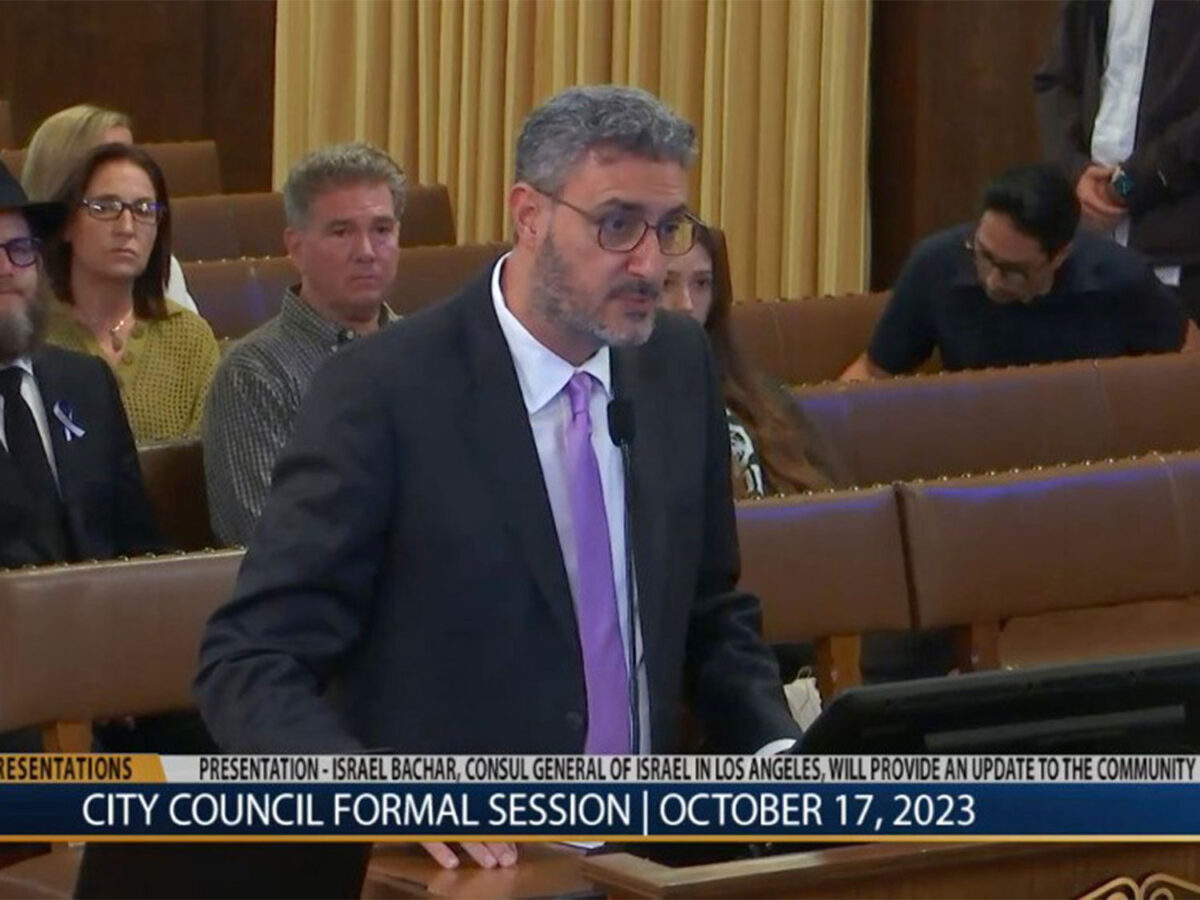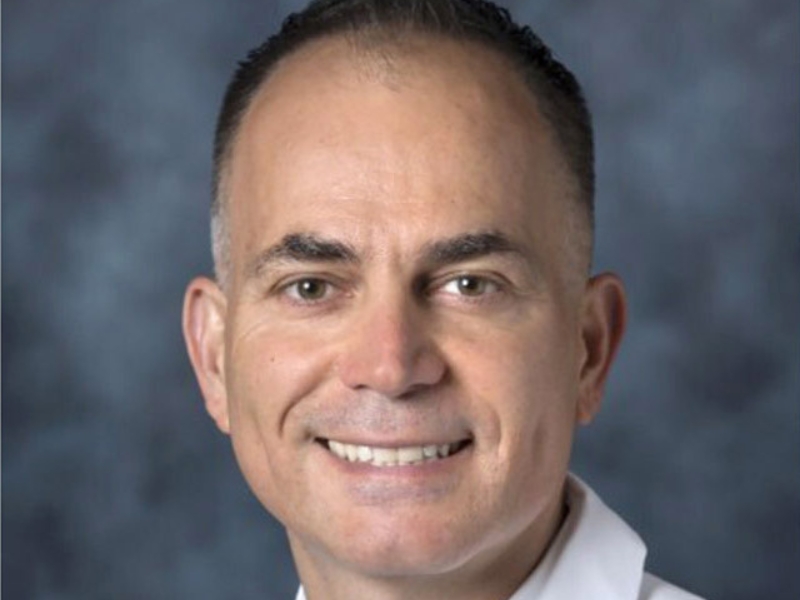Westwood-based Sinai Temple, one of the largest synagogues in the country, has launched a fellowship dedicated to educating rabbinical students about Israel, hoping the next generation of rabbis can have nuanced conversations about Israel based on history and fact.
Currently in its pilot phase, the Sinai Temple Israel Center Rabbinical School Fellowship was designed for first and sec- ond-year rabbinical school students. In the current cohort, there are 16 students.
The fellowship’s programming includes virtual gatherings on Zoom dedicated to the history of Zionism, how Israel is portrayed in the media and the U.S.-Israel relation- ship throughout history. It culminates with a weeklong trip to Israel, during which time fellows visit sites while engaging with leaders on issues facing Israel.
According to Sinai Temple’s incoming Co-Senior Rabbi Erez Sherman, the congregation is aiming to provide a model for how to facilitate civil and informed conversations around what is ordinarily a divisive topic.
“Sinai Temple is leading the discourse for this charge nationally,” Sherman told the Courier. “Sinai Temple’s model of discourse on topics concerning the State of Israel is, we believe, a model that can be used nationally and internationally in the Jewish world of how we digest and inspire others to also be engaged in the conversation and be at the table.”
Studies show the younger generation of American Jews are likelier than their parents or grandparents to hold critical views of Israel. In 2021, during an 11-day violent conflict between Israel and Hamas, the governing party in the Gaza Strip, more than 100 American rabbinical students signed a letter criticizing Israel for being an apartheid state and of the “violent suppression of human rights.”
And on college campuses, Boycott, Divestment and Sanctions (BDS), a nonviolent anti-Israel movement that cites Israel’s treatment of the Palestinians as a reason not to do business with the country, has increasingly gained traction. Supporters of Israel say the BDS movement is antisemitic.
According to Sherman, newer rabbis are reluctant to discuss Israel in their sermons because they fear they’ll be asked questions about BDS or anti-Zionism that they can’t answer.
The incoming co-senior rabbi at Sinai Temple believes the synagogue’s new Israel-focused rabbinical school fellowship can equip the country’s future rabbis with the knowledge they need to support Israel from the pulpit. These young leaders, he said, are in a unique place to influence discussion.
“This teaches rabbinical students how to sit at the table with many diverse Israel views and learn how to process what that means to them as American Jews and the Jewish world,” Sherman said.
Angela Maddahi, 66, a longtime resident of Beverly Hills, is enrolled at American Jewish University’s Ziegler School of Rabbinic Studies. The mother of three grown children and grandmother of five entered rabbinical school one year ago, and she’s in the current cohort of Sinai Temple’s new fellowship.
Speaking to the Courier in a phone interview from Israel, she said the fellowship has provided her with the opportunity to engage directly with Jewish and Palestinian people about Zionism, the Israeli-Palestinian conflict and the current on-the-ground situation in the West Bank and Gaza Strip.
“As somebody who’s been to Israel numerous times, I thought I knew a lot, but this is amazing, and I feel really privileged to be part of this program,” she said.
Sinai Temple launched the Zionist education fellowship with the support of several organizations, including Jewish National Fund-USA, the Paul E. Singer Foundation and the Lisa and Michael Leffell Foundation. Their support has allowed Sinai Temple to offer the fellowship as well as the trip to Israel at no cost to rabbinical students.
The fellows come from seminaries across the country, including Hebrew Union College-Jewish Institute of Religion, Jewish Theological Seminary, Academy for Jewish Religion California and Yeshiva University, representing each of the denominations of Judaism.
Reform rabbis ordained in the most liberal strain of Judaism often hold different political and social views than Orthodox clergy, and the bus-ride conversations among the fellows as they journey around Israel have been substantive and respectful.
“It’s a beautiful thing to watch Orthodox students speak to non-denominational students on a bus, and not just about Israel,” Sherman said.
For this year’s fellowship, there were more than 20 applicants, and Sherman is looking forward to next year’s fellowship.
“We’re hoping there will be more students next year,” he said, “that students will go back and say this is an experience you should have while in rabbinical school.”



